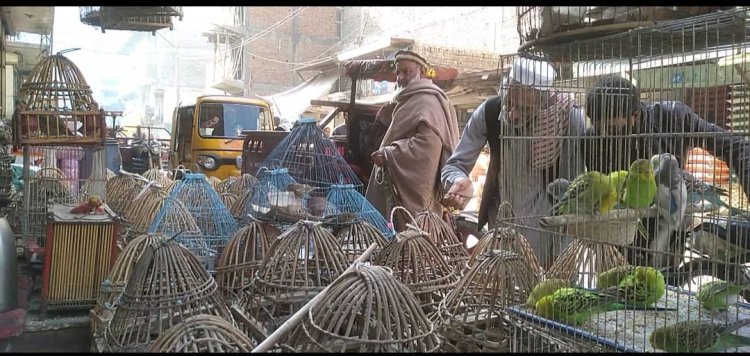Illegal Hunting: Endangered Birds in Afghanistan Facing Extinction

In Afghanistan, decades of war and relentless illegal hunting have inflicted severe damage on wildlife. Many rare birds and animals have either fled the country or are on the brink of extinction, though they can still be found in the mountains and plains of certain provinces.
Environmental experts have expressed concern over the disappearance of these animals, warning that illegal hunting has pushed rare and valuable bird species in Afghanistan to the verge of extinction.
Babrak Ourzang, an environmental specialist, believes that rare birds still exist in some provinces of Afghanistan and stresses the need for urgent measures to protect them from vanishing altogether.
He explains that Afghanistan’s wild animals are hunted at the instigation of outsiders and then smuggled to Iran, Pakistan, and Arab countries.
He said: “Most rare birds are found in Kandahar, Helmand, Uruzgan, Mazar-i-Sharif, Nangarhar, and several other provinces. But people there illegally hunt these birds and sell them to Arab buyers. As a result, the population of these valuable species is now disappearing.”
According to him, more than four decades of war in Afghanistan have not only claimed countless human lives but also caused immense harm to wildlife. Wars have forced many animals and birds to either flee the country or fall victim to illegal hunting.
He added: “Illegal hunting, war, and public negligence are the main factors pushing rare birds toward extinction. There must be serious efforts to stop poaching and protect these species.”
At the same time, a young volunteer named Nazar Mohammad has launched a personal campaign against bird hunting. He moves around urban and rural areas, raising awareness among young people about the dangers of illegal hunting.
He says he started this initiative to prevent the extinction of rare bird species. According to him, many people also keep wild birds and animals in poorly built cages where they eventually die.
He said: “Birds and animals are part of the beauty of our environment, so hunting them should be prevented. In many areas, hunters have promised me they will stop hunting.”
For the past six months, he has been running this campaign in Nangarhar. With financial support from some citizens, he has been able to buy birds from sellers in the city and release them back into the wild.
He explained: “I want to expand this campaign to other provinces. Most of the time, I spend money to buy caged birds from the market and then set them free. I feel great joy when I release a bird from its cage.”
Although his actions have been praised both legally and ethically, he insists that freeing caged birds is essential. “With every bird I release,” he says, “I feel a breath of relief.”
He added: “Many bird sellers told me that catching and keeping birds in cages is not right, but they have no other way to earn a living.”
According to him, the lack of proper job opportunities and social support has forced many people to rely on bird hunting and sales to make ends meet. “From what I have seen during this campaign, most people turn to hunting because of unemployment. If job opportunities were created for them, I believe this problem would be solved.”
At sunset, Nazar Mohammad returns home exhausted, already planning new strategies for the next day of his campaign. Despite awareness efforts, he says hunters still capture dozens of animals daily—either alive or killed for their meat and skins.
Due to its favorable climate, Afghanistan is home to hundreds of species of wildlife, including rare birds and animals unique not only to the region but even to the world. Yet many of them are caught by hunters and sold cheaply in local markets.
